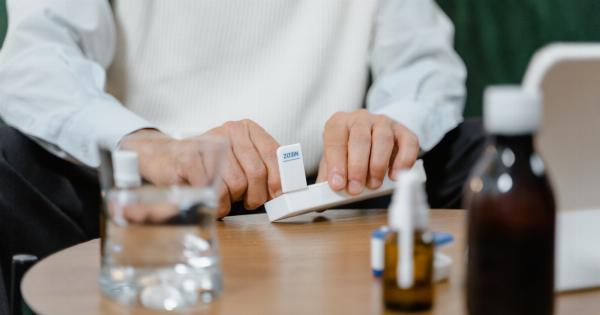Atopic dermatitis, also known as eczema, is a chronic inflammatory skin condition characterized by dry, itchy, and scaly skin patches that can become red, swollen, and painful.
According to the World Health Organization, atopic dermatitis affects up to 20% of children and 3% of adults worldwide.
While the exact cause of atopic dermatitis is unknown, several factors contribute to its development, including genetics, immune system dysfunction, and environmental triggers.
One such trigger that has been the subject of increasing research in recent years is dietary salt.
What Is Salt?
Salt, also known as sodium chloride, is an essential mineral that our bodies need to maintain normal fluid balance, nerve function, and muscle contraction. Salt is found naturally in many foods, including meats, fish, dairy, and vegetables.
However, most of the salt we consume comes from added salt in processed and packaged foods and table salt.
How Does Salt Affect Atopic Dermatitis?
Studies have shown that excessive salt intake can trigger and worsen atopic dermatitis symptoms. Salt intake can affect the skin in different ways:.
: 1. Dehydration and dryness
Excessive salt intake can dehydrate your body, leading to dry skin and aggravating eczema symptoms. When your body doesn’t have enough water to maintain skin hydration, your skin can become rough, itchy, and flaky, making eczema symptoms worse.
: 2. Inflammation
Excessive salt intake can trigger an inflammatory response in the body, leading to swelling, redness, and itching. Inflammation can also exacerbate eczema symptoms and make them more severe.
: 3. Reduced Skin Barrier Function
Salt has been shown to damage the skin’s protective barrier, which can lead to dryness, inflammation, and an increased risk of infection.
When the skin’s barrier function is compromised, allergens and irritants can penetrate the skin more easily, leading to eczema flare-ups.
What Does the Science Say?
Several studies have investigated the link between salt intake and eczema. A recent study published in the Journal of Allergy and Clinical Immunology found that a high-salt diet can exacerbate eczema symptoms in mice with genetically predisposed eczema.
The study showed that salt intake increased inflammation in the skin and worsened eczema symptoms, including itching and redness.
Another study published in the International Journal of Dermatology found that a low-salt diet improved eczema symptoms in adult patients with atopic dermatitis.
The study showed that reducing salt intake led to a decrease in skin inflammation and an improvement in skin hydration and barrier function.
What Should You Do?
If you have atopic dermatitis, it’s important to pay attention to your salt intake and its effects on your symptoms. Here are a few tips to help reduce your salt consumption:.
: 1. Read labels
Processed and packaged foods are often high in salt, so it’s important to read labels and choose low-sodium options. Look for products that contain less than 200 mg of sodium per serving.
: 2. Cook at home
When you cook at home, you have more control over the ingredients you use, including salt. Use herbs, spices, and lemon juice instead of salt to add flavor to your meals.
: 3. Avoid salty snacks
Salty snacks like chips, crackers, and pretzels are often high in salt. Choose healthier snack options, such as fresh fruit, vegetables, or unsalted nuts.
: 4. Stay hydrated
Drinking enough water can help keep your body hydrated and your skin moisturized. Aim for at least 8-10 glasses of water per day.
The Bottom Line
Excessive salt intake can worsen eczema symptoms by dehydrating the skin, triggering inflammation, and damaging the skin’s barrier function.
If you have atopic dermatitis, it’s important to pay attention to your salt intake and choose low-sodium options to help manage your symptoms.






























